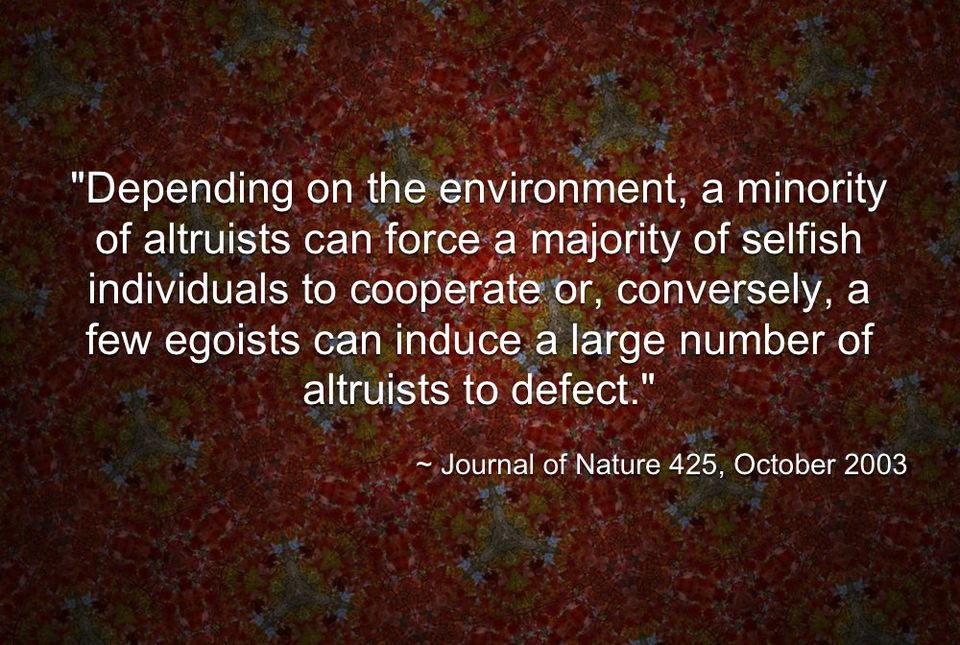What do you choose, competition or cooperation, when it comes to your daily actions and interactions? Do you realize that what you decide is highly dependent on who is in charge — person or system, and how much you are influenced by them or it?
Unfortunately, many of us live with the belief that competition is our natural human tendency. Our greed and growth-obsessed society are all too eager to push this idea through every outlet it can, from educational institutions to business settings. However even outside of the academic and economic world, this idea is pervasive and can be witnessed within all too many families and communities.
But is it the truth? Are we naturally wired to compete against each other? Upon further inquiry and introspection, we find that we actually aren’t. The concept that competition is our natural tendency is a theory that has turned into a self-fulfilling prophecy for our society and a belief that is conditioned upon us, which keeps us stuck in destructive behaviors towards ourselves and others. Unfortunately given how things are currently structured, neither the economic sector nor other levels of organization in our society have a motive to change this belief amongst humans. Scarcity, comparison, and competition sell things, raise profits, and are ultimately “good for business”.
This is why in this area, just as any other, it all comes down to each one of us. What is your best? What is your highest expression of who you know yourself to be? How will you define yourself to yourself and others? Will you allow yourself to be guided by inner wisdom or will you subject yourself to living based on external conditioning and social pressures? Although the challenge may seem great for many people, as it requires them to transcend this belief system, positive change is in the air with new generations ushering in new attitudes, values, and visions. For a great example of this, I invite you to watch this short video, why millennials are fed up with capitalism, which perfectly illustrates how and why we can and need to rise above the outdated belief of competition and the “every person for themselves” mentality.
As both ancient and present-day spiritual teachers have all been trying to teach us, the answer to transcend so much of our suffering is in acting from a space of love, compassion, and kindness. This means in all cases, not that you are going to take a loving approach towards your family, while you take a hostile approach towards other people in your life, work or other countries, etc. The more you align with altruism, compassion, empathy, kindness, and love, the more you align with your true human nature. Living based on these attributes improves your health, work, relationships, and life as a whole!
There is one more big piece to this puzzle, in order to see the big picture. This goes back to what I shared with you at the beginning, in that how you act and what you choose is greatly conditioned upon you by others in your vicinity. This can mean your immediate family or it can mean your workplace or the culture you find yourself in. As reported in the journal of Nature in the article entitled The nature of human altruism, “Depending on the environment, a minority of altruists can force a majority of selfish individuals to cooperate or, conversely, a few egoists can induce a large number of altruists to defect.” So who you surround yourself with, who you listen to and are most influenced by will literally bring out the best or the worst of you. When you think about it, this is not a novel idea, we just need to extend it to our discussions associated with our human nature too, in order to see and seize the amazing cooperation and altruism we are capable of.
Related Reading
Article — Is Human Nature Fundamentally Selfish or Altruistic?
Article — We’re not as selfish as we think we are. Here’s the proof
Book — Altruism: The Power of Compassion to Change Yourself and the World
Book — The Most Good You Can Do: How Effective Altruism Is Changing Ideas About Living Ethically

